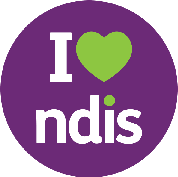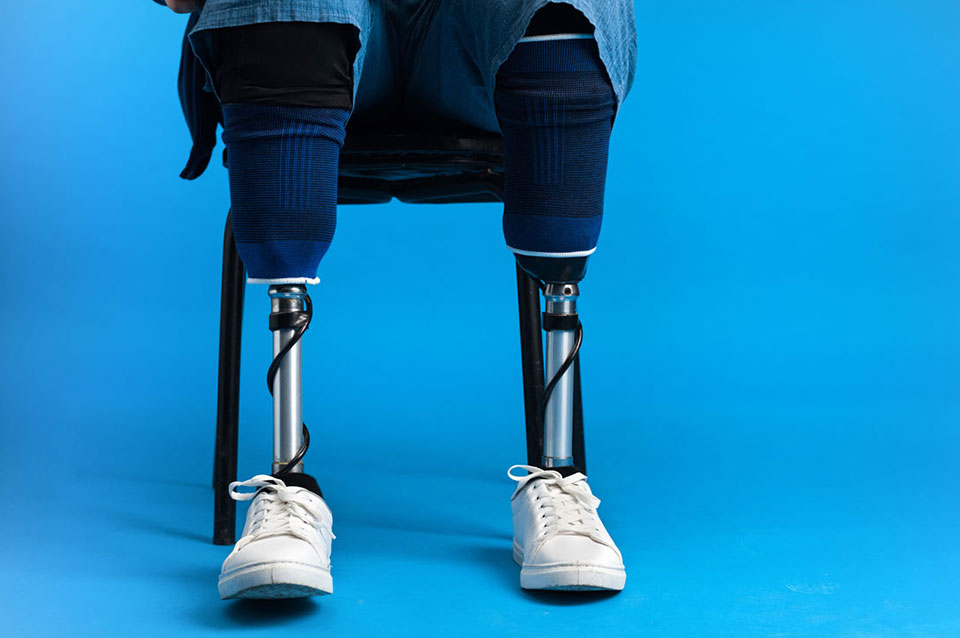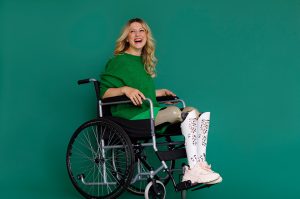Many NDIS participants in NSW aren’t accessing their full range of available NDIS services simply because they don’t know these services exist. At Centre of Hope, we’re committed to helping you unlock the hidden potential in your NDIS plan across NSW.
The Untapped Potential in Your NDIS Plan
The range of NDIS services in NSW is extensive, yet many participants aren’t aware of what’s available to them.
Did you know that fewer than 70% of allocated NDIS funds are typically used by participants? That means many Australians are missing out on valuable supports that could significantly improve their quality of life. According to the NDIS Quarterly Report, this underutilization often stems from participants not fully understanding what their plans can cover.
At Centre of Hope, we specialise in helping participants maximize their NDIS plans. Let’s explore some of the lesser-known NDIS funded supports that you might be eligible to access.
1. Home Modifications Beyond the Basics
What most people know: The NDIS can fund ramps, grab rails, and bathroom modifications.
What you might not know: Your NDIS plan can potentially cover smart home technology that increases independence, including:
- Voice-activated lighting and appliance control systems
- Automated door openers and window controls
- Environmental control units that allow operation of multiple devices from a single interface
- Safety monitoring systems specifically designed for people with disabilities
These modifications go beyond basic accessibility to create truly enabling living environments that can dramatically increase independence.
2. Vehicle Modifications and Transport Options
What most people know: The NDIS includes a transport allowance for some participants.
What you might not know: The NDIS can fund:
- Extensive vehicle modifications including hand controls, wheelchair loading systems, and specialized seating
- Driver assessment and training with adaptive equipment
- Transport to attend community activities (not just medical appointments)
- In some cases, contribution toward a vehicle purchase if it’s deemed reasonable and necessary
For many participants, these supports can mean the difference between isolation and active community participation. The NDIS Capital Support budget specifically covers these types of modifications as they’re considered essential for independence.
3. Specialized Recreation and Fitness Programs
What most people know: The NDIS can fund support workers to assist with community access.
What you might not know: Your plan can cover:
- Adapted recreational equipment and sports wheelchairs
- Entry fees and memberships to inclusive fitness programs
- Specialized coaching or instruction in adaptive sports
- Horse riding, swimming, and other therapeutic recreational activities that meet your goals
- Group fitness programs specifically designed for people with disabilities
These services not only support physical health but also social connection and overall wellbeing. The NSW Government Disability Strategy offers additional resources and programs that complement these NDIS-funded recreational supports.
4. Assistive Technology Beyond the Obvious
What most people know: The NDIS funds wheelchairs, communication devices, and hearing aids.
What you might not know: There’s a vast range of innovative assistive technology available:
- Wearable technologies that monitor health and provide safety alerts
- Specialized communications software and apps
- Cutting-edge prosthetics and adaptive equipment
- Sensory tools and equipment
- Assistive technology consultations to identify the best solutions for your specific needs
- Trial periods for expensive equipment before purchase decisions
Technology is evolving rapidly, and your NDIS plan can help you access innovations that might dramatically improve your independence. The Assistive Technology Strategy from the NDIS outlines how participants can incorporate these technologies into their plans.
5. Capacity Building Through Coaching
What most people know: The NDIS funds therapies like physiotherapy and occupational therapy.
What you might not know: Your plan can include:
- Life coaching specifically focused on disability-related challenges
- Financial capability building to manage your NDIS budget effectively
- Mentoring from people with similar disabilities
- Skills training for independent living
- Employment coaching and workplace support
- Driving lessons with specialized instructors
These services focus on building your capabilities rather than just providing ongoing care. The NDIS has nine different capacity building support categories, each designed to increase your independence in specific areas of life. Learn more about the various capacity building supports available and how they can transform your quality of life.
6. Support Coordination That Actually Works
What most people know: Support coordination helps connect you with services.
What you might not know: Specialist support coordinators can:
- Navigate complex systems for participants with psychosocial disabilities
- Provide crisis management during difficult periods
- Coordinate with multiple health services for participants with complex needs
- Help resolve conflicts with service providers
- Advocate for plan reviews when your needs change
- Research innovative solutions specific to your disability
Many participants don’t realize they can request a higher level of support coordination to match their needs. Learn more about how quality Support Coordination can transform your NDIS experience.
7. Home and Living Supports
What most people know: The NDIS can fund personal care assistance.
What you might not know: Your plan might include:
- Overnight support for periodic needs rather than just regular scheduled care
- Assistance with household tasks that build independence
- Meal preparation coaching (not just meal delivery)
- Shared living arrangements with carefully matched housemates
- Medium-term accommodation while waiting for housing solutions
- Assistance with tenancy obligations
These supports can transform your living situation and increase your independence at home. For personalized assistance with your housing needs, visit our services page to learn how we can help with your accommodation goals.
How to Access These Hidden Gems
- Review your plan goals: Ensure they reflect your true aspirations, not just basic needs
- Speak with your support coordinator or LAC: Ask specifically about these lesser-known supports
- Connect with specialized providers: Some services work extensively with innovative NDIS supports
- Join peer support groups: Other participants often share valuable insights about available services
- Request a plan review: If your current plan doesn’t reflect your complete needs
For personalized assistance with any of these steps, our team at Centre of Hope specializes in NDIS services NSW and can guide you through the process with expertise and compassion.
Making the Most of Your NDIS Services in NSW
NDIS services NSW participants can access include all these supports plus some state-specific advantages through partnerships between the NDIS and NSW government programs. Local Area Coordinators in NSW can help you navigate these opportunities. The NSW Government Disability Strategy complements NDIS services with additional local initiatives.
According to Disability Services Australia, NSW residents can also benefit from state-specific advocacy services that help ensure your NDIS plan meets your specific regional needs.
Remember, the NDIS is designed to provide reasonable and necessary supports to help you achieve your goals and increase your independence. Don’t miss out on valuable services simply because you didn’t know to ask for them.
Are you making the most of your NDIS plan? Contact us today for a comprehensive plan review to ensure you’re accessing all the supports you’re entitled to receive. For new participants, our referral process is straightforward and supportive, or you can book an appointment directly with one of our NDIS specialists.
Visit our blog for more insights on maximizing your NDIS experience.
This article is for informational purposes only. Individual NDIS plans vary based on assessed needs and goals. Always consult with your NDIS planner, Local Area Coordinator, or Support Coordinator regarding your specific situation.








